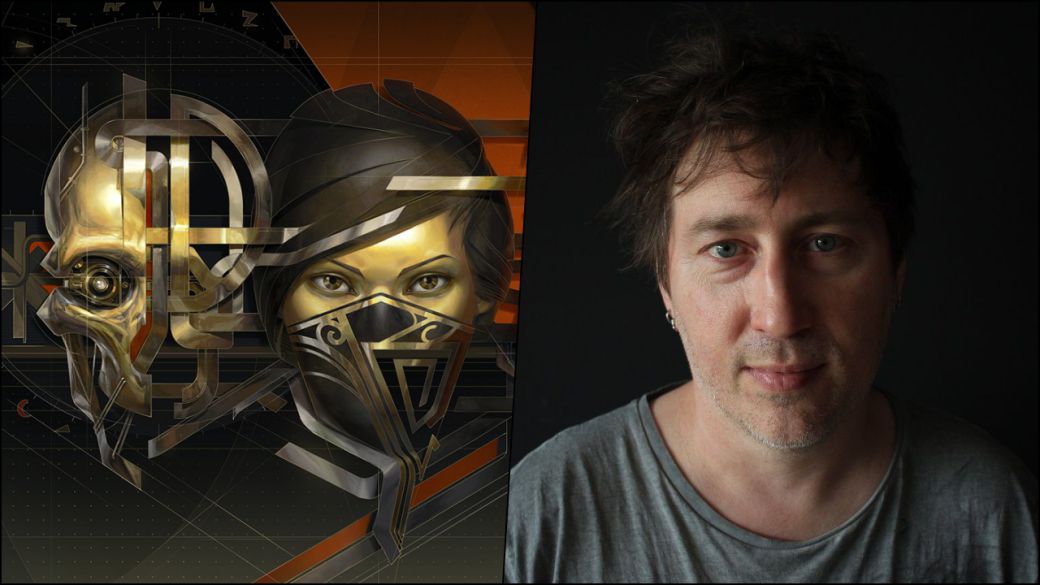
We chatted about with the head of Dishonored, elementary member of System Shock and Deus Ex, on the occasion of Fun & Serious Game Festival 2020.
When we think of the greatest exponents of the industry in terms of level design, we can surely think of teams such as Valve, IO Interactive, Irrational Games, Retro Studios, FromSoftware or Arkane Studios, among others, but it is the latter that that more constancy has left the mastery that is presupposed to the great talents of the industry through a name, Dishonored, that should not go unnoticed in the agendas of any lover of this medium.
Video games are culture and culture is created by people. That is why there are works with their own stamp, creations that resemble a name and a style. Harvey Smith, creative co-director of Arkane Studios and responsible together with Raphael Colantonio for the hundreds of awards that Dishonored won, is also the mind behind Dishonored 2, has chatted with FreeGameTips about the basic rules of level development in video games on the occasion of the Fun & Serious Games Festival 2020, which celebrates its tenth edition this year with exceptional guests.
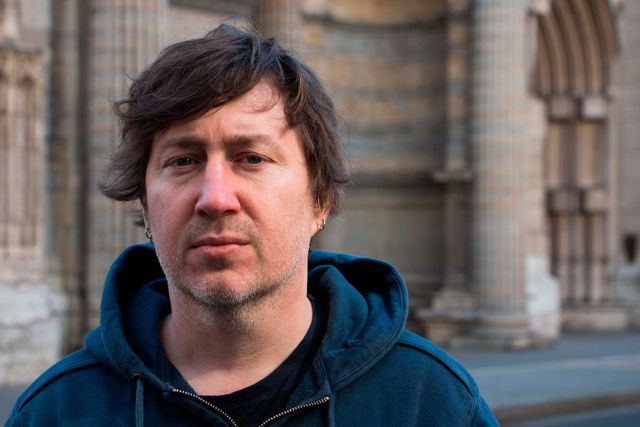
Harvey smith
Only virtual due to the conditions of COVID, both he and Warren Spector, Joe Madureira or Tim Willits have turned the Bilbao video game congress into the authentic world capital of the media this past weekend. Smith saved a few minutes for an encounter with this house.
FreeGameTips: First of all, let’s talk about video game design and how to connect that aspect of a title in its development. Its impact.
Harvey Smith: Level design is a very interesting thing. You have to be aware that there are many ways to deal with it, how the player deals with the environment. Especially if you are going to allow multiple paths, you must draw the attention of the players to the one who only wants to advance and that’s it. So you have to draw his attention to things, get them out of the way, distract him; you have to watch others play your video game to see where they are going and where they are not. If you can get them to veer off to the side to do something, they will probably want to take a short route to get back to where they already were.
There are, many things from an artistic and narrative point of view when it comes to designing levels. You want them to know who lives there, what is the history of those places, what is the culture of those locations. You want them to know what kind of mood you are trying to evoke in the player. You don’t want to exhaust the player with one encounter after another.
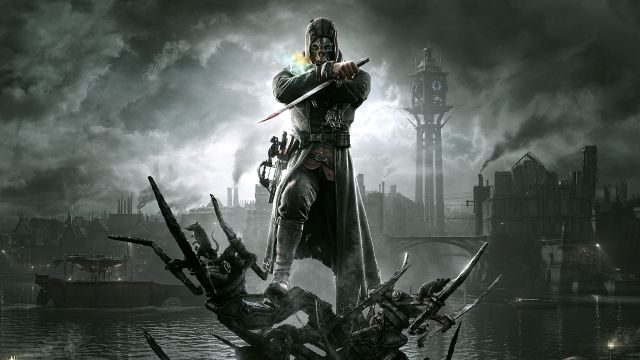
Dishonored | Arkane studios
Therefore, you should be clear about how much time you include downtime versus uptime; like downtime versus emotional time, which must take into account the pace the player chooses. Because if the player is going very slow, then the environment has to be very detailed, there have to be things to play with, experiment with, or observe. It is important to think about the sound and how the player perceives the sound. Even to get your attention.
Can you give us an example that we can meet in a three-dimensional setting?
For example, if I have a scenario where there is suddenly a new type of window and I have never interacted with that type of window in the game, then I need some type of interaction standards to immediately intuitively understand what to do. Use it.
You can’t have a game where everything is full of crank wheels but you can’t use them. Open a door, you have to be able to use a crank, because you’ve already trained me to pay attention to cranks. So somehow the player is looking hopelessly for codes, they see an enriched environment. And they are looking for the things that they know they can interact with. The level design is based on a constant trial and error test.
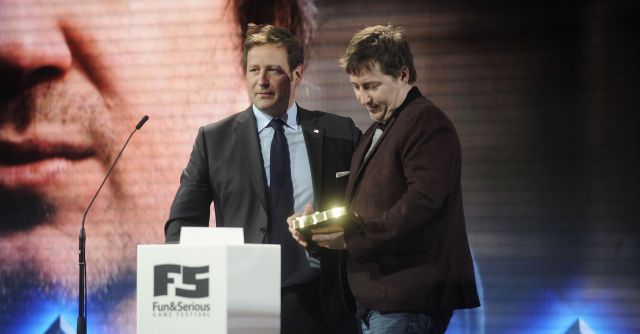
Harvey Smith, at Fun & Serious Game Festival 2016. Premo Vanguardia.
This type of approach must present great challenges and unforeseen events. How do you handle such complex situations?
The biggest challenges are always the people on the team. You know, bringing a group of people together and getting them to share your vision and move towards that vision is difficult. It is complex if you are not with them in the same office, that they understand the vision enough to be autonomous and do it for themselves. Overcome personal conflicts and develop that creative chemistry together. And overcome your own ego, so that you can really engage and connect with them, as the people around you are always the most challenging piece. If you are lucky and surrounded by smart people and you get good feedback, who can help you see where something is broken, where it is good and where it should stand out, then you are in a good position. But the biggest challenge you may encounter are the personalities and minds of the people involved.
Dishonored 2 is one of the current pinnacles when it comes to setting and level design in the first-person adventure genre. Is it the best-scoring game of all you’ve played so far?
It is a complex question, I should not be the one to answer that. But I have to say that, after 27 years of experience in the industry, I have worked with great teams that deserve all the credit possible; also with huge equipment for bad games that people don’t even remember anymore.
For me personally, the most creative validation and satisfaction that I have definitely had has been Deus Ex, Dishonored and Dishonored 2. I think the latter is amazing. There are some people who like Dishonored one better because it was new to them. Then the sequel came out and yeah, it’s more Dishonored, I get it, but we tried to reinforce it all into something better. So it would be difficult for me to choose between those three. There are other experiences, I have enjoyed with other teams, I have loved dealing with difficult problems that we have managed to solve, and that was interesting too, but in its own way.
In fact, I’ve ended up having maybe five of my best friends from those teams. And three very memorable love affairs. […] They were very significant experiences.
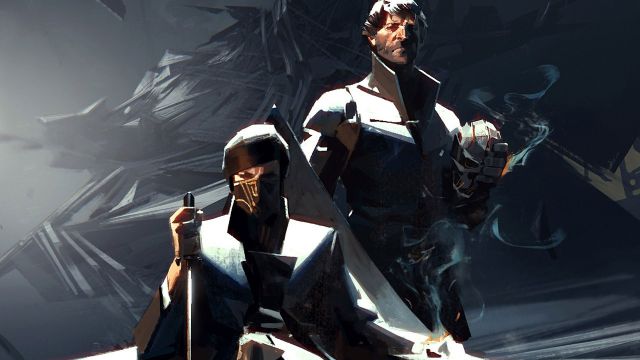
Dishonored 2 | Arkane studios
How do you assess the evolution of the puzzle genre during this generation that is now ending?
When I first arrived in Bilbao, someone pointed out the large topiary sculpture of the dog. And they said her name is Poppy. And I didn’t know if they said “puppi” or “poppi”. It is a conversation that I did not understand well. And so we come to the puzzles, yes. It’s interesting because the puzzles are like “find the right pixel and click” or in any adventure game where you have to put the banana in a bucket and then something happens, it is not that powerful because there is only one correct way to do it. I am not part of the fact that you can find out everything if you just have to make a mistake and then do it right.
I think the genre has a lot of potential. But it has been replaced by things that are a bit more organic or a bit more flexible. I was telling someone before that the game I’ve been playing the most recently is Slay the Spire, the card game. At first it is very superficial, but then you play it and it gets deeper and deeper, there are so many mechanics to discover and explore … It is perfectly inspired by pirate themes and it is a lot of fun to dive into this game, explore it and learn how they combine letters. It feels like a puzzle, like a puzzle.
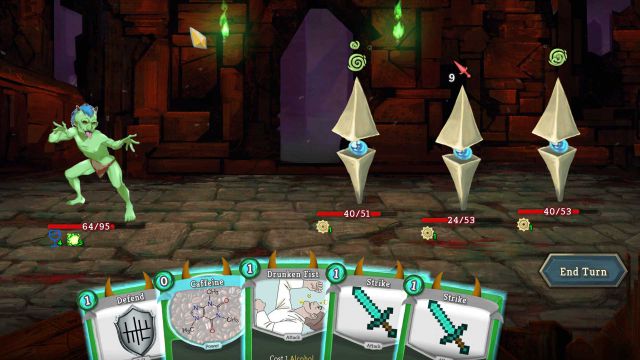
Slay the spire
When you meet a boss and damage him, the damage of his minions increases. So you quickly learn that you don’t want to hurt him yet. You need to kill the minions first! Otherwise, they are doing you 100 points of damage. They are going to kill me! It is quite a puzzle. How can I weaken them without hurting him? How can I get rid of them quickly so I can focus on it? I think Richard Garfield discovered with Slay the Spire that cards can be an interesting tactical space or a space for strategic exploration where you can create your own deck and then create combinations in an interesting way. It’s almost like the more organic, pop-up version of puzzles. It is not the only type of game I play, of course; I love shooters and open world games, and I love exploration games.
In closing: do you think the industry is approaching a better place than it was five or ten years ago?
I find it interesting to think because, if I look minute by minute, sometimes I get to feel outraged or frustrated by something that a company does or something that someone does, or something that the game does; I can get angry. But if I go back and look at how we were ten years ago, I see progress in how many different kinds of people work on games, how many different kinds of games are there, how much money video games make; how high the technology behind them has reached.
But, if I go back and take a good look, honestly, the games are quite a bit more special at the moment compared to when they were just a black background with white sticks bouncing a ball back and forth. And there is nothing to stop you from making the game you want to create no matter what it is; be it a dating simulator or a weather simulator. You just have to have the will, the skill, and the money. The borders are still open, in my opinion, there is still a lot to explore. We are still skimming the surface.

